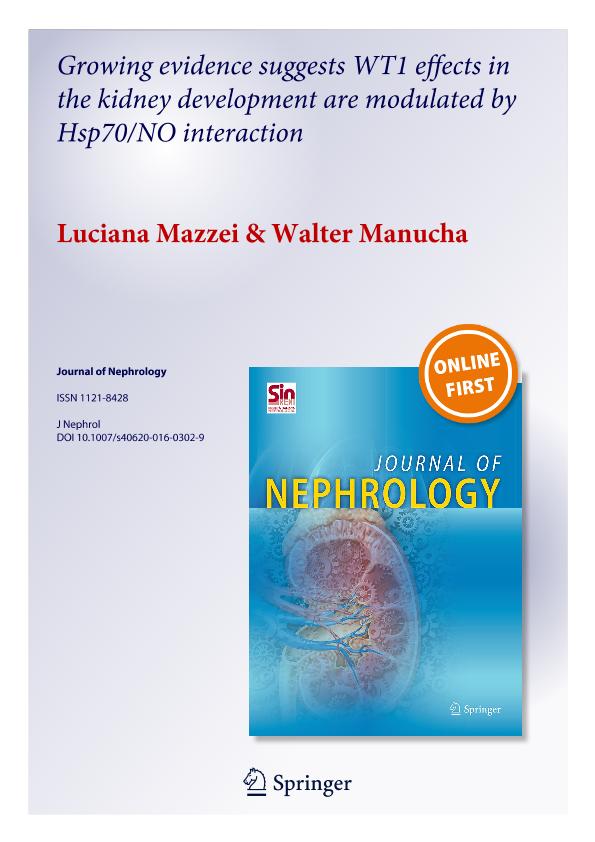Artículo
Growing evidence suggests WT1 effects in the kidney development are modulated by Hsp70/NO interaction
Fecha de publicación:
02/2017
Editorial:
Springer
Revista:
Journal of Nephrology
ISSN:
1121-8428
e-ISSN:
1724-6059
Idioma:
Inglés
Tipo de recurso:
Artículo publicado
Clasificación temática:
Resumen
The study of kidney development at the cellular and molecular levels remains an active area of nephrology research. The functional integrity of the kidney depends on normal development as well as on physiological cell turnover. Apoptosis induction is essential for these mechanisms. A route to cell death revealed in the past decade shows that heat shock proteins (HSPs) and their cofactors are responsible for regulating the apoptotic pathway. Specifically, heat shock protein 70 (Hsp70), the most ubiquitous and highly conserved HSP, helps proteins adopt native conformation or regain function after misfolding. Hsp70 is an important cofactor for the function of Wilms’ tumour 1 (WT1) and suggests a potential role for this chaperone during kidney differentiation. In addition, we have demonstrated that WT1 expression is modulated by nitric oxide (NO) availability and Hsp70 interaction after neonatal unilateral ureteral obstruction. NO has been identified as playing an important role in the developing kidney. These findings suggest that Hsp70 and NO may play a critical and fundamental role in the capacity to modulate both apoptotic pathway and oxidative stress during kidney development. Furthermore, the design of experimental protocols that assess renal epithelial functionality in this context, could contribute to the understanding of renal development and alterations.
Archivos asociados
Licencia
Identificadores
Colecciones
Articulos(IMBECU)
Articulos de INST. DE MEDICINA Y BIO. EXP. DE CUYO
Articulos de INST. DE MEDICINA Y BIO. EXP. DE CUYO
Citación
Mazzei, Luciana Jorgelina; Manucha, Walter Ariel Fernando; Growing evidence suggests WT1 effects in the kidney development are modulated by Hsp70/NO interaction; Springer; Journal of Nephrology; 30; 1; 2-2017; 11-18
Compartir
Altmétricas




